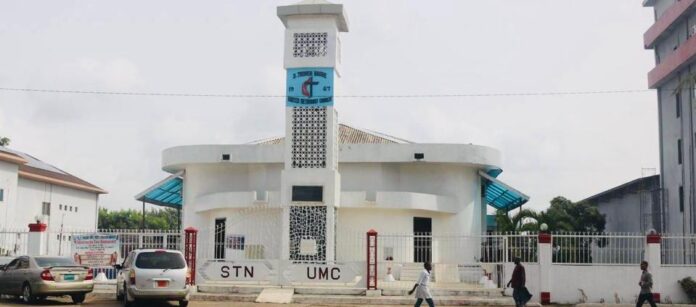Monrovia, Liberia – A legal dispute within the United Methodist Church in Liberia has landed in the Sixth Judicial Circuit, Civil Law Court, as the Stephen Trowen Nagbe United Methodist Church (ST Nagbe UMC) seeks judicial clarity on issues related to marriage, church doctrine, and leadership authority.
The church has filed a petition for declaratory judgment, naming the United Methodist Church Liberia Annual Conference and its leadership as respondents. The named parties include the Board of Trustees, chaired by Father Henry Brunsun, Directress Mth. Eliza Kronyanh, and Resident Bishop Samuel Jerome Quire Jr. The ST Nagbe UMC legal team argues that uncertainty over the interpretation of marriage, sexual conduct, and leadership structure within the national church hierarchy has created confusion that affects the rights of congregants and the authority of local leadership.
Core Issues of the Petition
Central to the petition is the church’s call for the court to affirm Liberia’s statutory definition of marriage as a civil union between one male and one female. Lawyers for ST Nagbe cite Section 43.2 of the Civil Procedure Law, emphasizing that legal ambiguities have arisen that could conflict with Liberia’s statutory and moral codes.
The church contends that several existing frameworks—namely the Domestic Relations Law of Liberia, the Penal Law, and the 2016 Book of Discipline of the United Methodist Church—collectively uphold traditional marriage norms and explicitly denounce practices viewed as contradictory to these principles. The petition specifically challenges interpretations or practices that recognize or accommodate same-sex relationships, arguing that such deviations violate not only biblical and doctrinal standards but also civil and criminal law, including Chapter 14, Section 14.74 of the Penal Law, which criminalizes certain sexual behaviors.
Concerns Over Leadership and Doctrinal Authority
Beyond the definition of marriage, the ST Nagbe UMC petition highlights what it perceives as doctrinal overreach by the national church leadership. The local congregation asserts that unilateral decisions or reinterpretations by the Liberia Annual Conference may undermine the authority of individual congregations and their pastoral leadership. By seeking a declaratory judgment, the petitioners hope to secure legal recognition of their interpretation of church doctrine and safeguard the standing of their clergy and congregants.
The church emphasizes that clarity from the courts is essential not only to uphold doctrinal integrity but also to prevent future conflicts over governance, policy interpretation, and congregational rights. Legal experts note that such a judgment could have far-reaching implications for the Methodist Church in Liberia, potentially setting precedent for other local churches navigating tensions between national leadership and individual congregations.
Next Steps in the Legal Process
The case has been assigned to Circuit Judge George W. Smith and remains pending before the Sixth Judicial Circuit. Observers anticipate that the court will carefully consider the intersection of civil law, criminal statutes, and religious doctrine, as well as the broader implications for church governance and congregational autonomy.
Legal analysts suggest that the outcome could influence debates within Liberia’s religious communities on issues such as marriage, sexual ethics, and local versus national church authority, and may spark wider discussion on how civil law intersects with religious practice.
As the proceedings continue, both church leaders and legal experts are closely monitoring developments, recognizing that the ruling may clarify the limits of national church authority, define the enforceable scope of traditional marriage laws, and shape the governance framework for Methodist congregations across Liberia.



